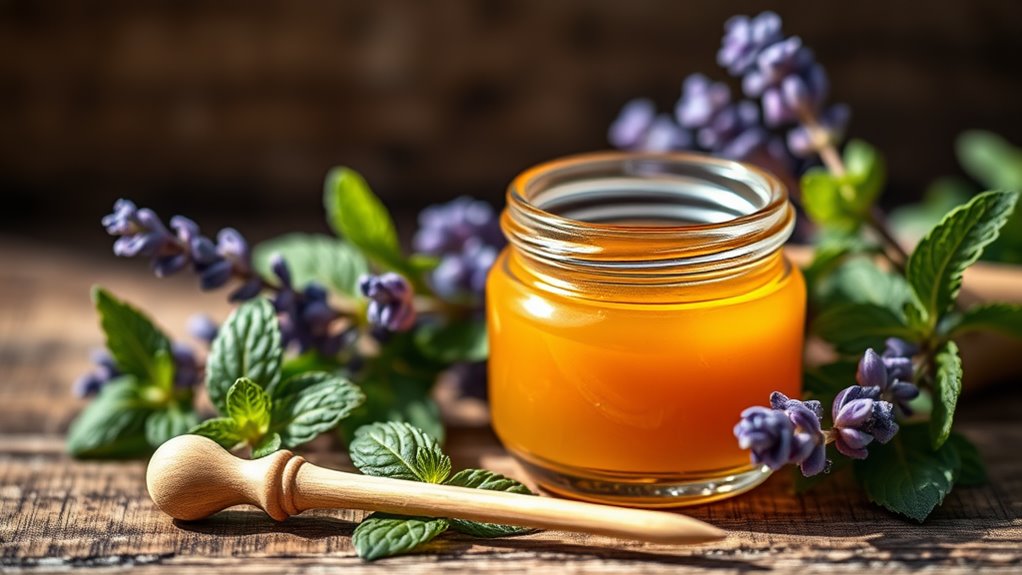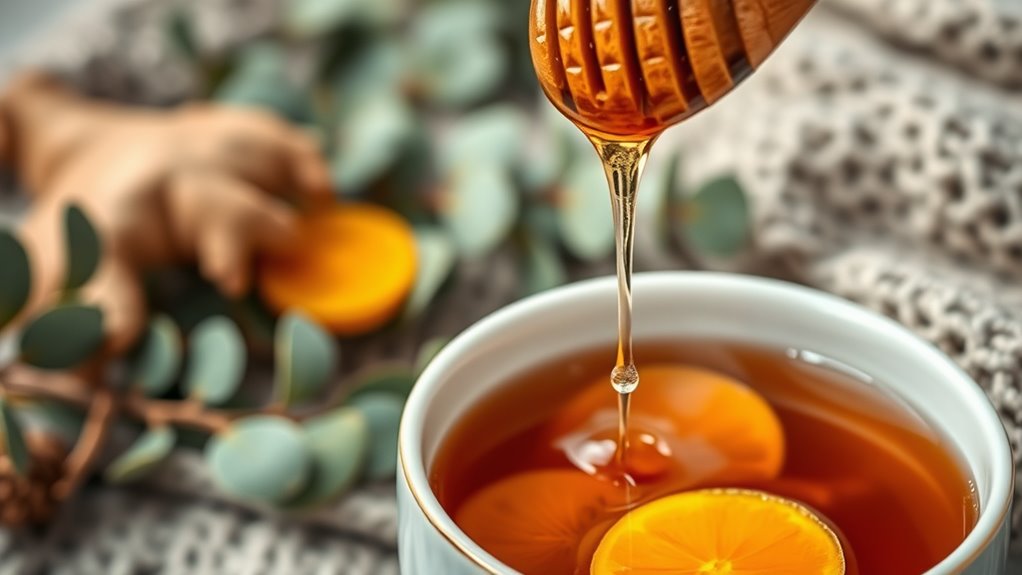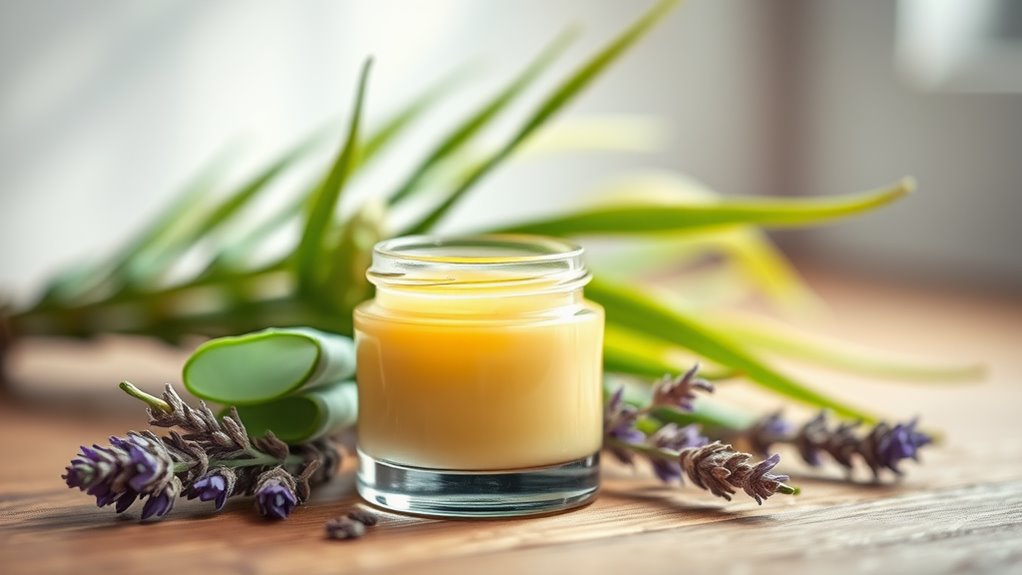My Go-To Remedy for Cold Sores You’ll Wish You Knew Sooner
When that pesky little tingle shows up, it’s like a not-so-welcome guest at a party. You might think there’s nothing you can do, but there’s actually a straightforward remedy that can make a real difference. By knowing how to act quickly and effectively, you can minimize discomfort and keep those outbreaks at bay. Curious about the steps to take and how to incorporate them into your routine? Let’s explore this effective approach to cold sore management.
Key Takeaways
- Apply topical antiviral creams like acyclovir or docosanol at the first sign of a cold sore for faster healing and pain relief.
- Use lip balm with SPF to protect against sun exposure, a common trigger for outbreaks.
- Incorporate lemon balm extract for its natural antiviral properties to help combat cold sores.
- Keep a journal to identify personal triggers, such as stress or specific foods, to prevent future outbreaks.
- Maintain a balanced diet rich in lysine and stay hydrated to support your immune system and reduce flare-ups.
Understanding Cold Sores
Cold sores, also known as fever blisters, are small, fluid-filled lesions that typically appear on or around your lips. They’re caused by the herpes simplex virus, often triggered by stress, illness, or sun exposure.
While there’s no cure, many effective cold sores remedies can help alleviate symptoms and speed up healing. Over-the-counter creams containing docosanol or acyclovir can provide relief, while natural options like lemon balm or aloe vera may soothe irritation. Keeping your immune system strong with a balanced diet and hydration is essential, as certain foods high in arginine can trigger outbreaks.
Understanding cold sores will empower you to manage and mitigate their impact on your life.
Identifying Triggers
Identifying triggers that lead to cold sores is essential for managing outbreaks effectively.
You might notice that stress, illness, or fatigue often precede an outbreak.
Sun exposure can also play a significant role, so using lip balm with SPF is vital.
Hormonal changes, like those during menstruation, can trigger a flare-up as well.
Additionally, certain foods, particularly those high in arginine, may contribute to outbreaks.
Keeping a journal to track your lifestyle, diet, and emotional state can help pinpoint your unique triggers. Furthermore, being aware that strong immune systems can help reduce the frequency of outbreaks is crucial for effective management.
My Effective Remedy
When you feel that familiar tingle signaling an impending cold sore, having an effective remedy on hand can make all the difference.
One of the best options is a topical antiviral cream containing acyclovir or docosanol.
Studies show these can greatly speed up healing and reduce pain.
Additionally, applying a lip balm with SPF can help protect your lips from sun exposure, which may trigger outbreaks.
For a natural approach, consider using lemon balm extract, known for its antiviral properties. Identifying and avoiding allergens can also help reduce the frequency of outbreaks.
Application Techniques
Before applying any remedy for cold sores, it’s essential to cleanse the area thoroughly to prevent infection.
Once you’ve cleaned the skin, consider layering your treatments for maximum effectiveness; this can enhance absorption and provide better results. Additionally, maintaining good oral hygiene can help prevent future outbreaks and promote overall skin health.
Cleanse Before Application
To effectively treat cold sores, it’s essential to start with a clean slate.
Begin by washing your hands thoroughly with soap and water to prevent any bacteria from spreading.
Next, cleanse the affected area gently using a mild soap or antiseptic wipe.
This step removes dirt and oils that could hinder your treatment’s effectiveness.
Pat the area dry with a clean towel, avoiding any rough rubbing that could irritate the skin further.
Layering for Effectiveness
Layering your cold sore treatment can greatly enhance its effectiveness. Start with a base layer of antiviral cream, allowing it to absorb. Next, apply a soothing balm to lock in moisture and reduce irritation. Finish with an SPF lip balm to protect against sun exposure, which can trigger outbreaks.
Here’s a quick reference table to guide your layering:
| Step | Product Type | Purpose |
|---|---|---|
| 1 | Antiviral Cream | Reduces virus activity |
| 2 | Soothing Balm | Moisturizes and calms skin |
| 3 | SPF Lip Balm | Protects against sun damage |
Prevention Tips
To prevent cold sores, maintaining good lip hygiene is essential—regularly clean your lips and avoid sharing personal items. Additionally, limiting sun exposure can help protect your skin, as UV rays can trigger outbreaks. Staying hydrated is crucial for skin recovery after sunburn, which can also help in preventing dehydration-related triggers.
Maintain Lip Hygiene
While you can’t always prevent cold sores, maintaining proper lip hygiene can greatly reduce your risk.
Start by keeping your lips moisturized; dry, cracked skin can create openings for the virus. Use a lip balm with SPF to protect against harmful UV rays.
Clean your lips regularly, especially after eating or drinking, to remove any potential irritants. Avoid picking at your lips or touching them frequently, as this can introduce bacteria. Finally, don’t share lip products or utensils, as the herpes simplex virus spreads easily.
Limit Sun Exposure
Since excessive sun exposure can trigger cold sores, it’s important to take proactive measures to protect your lips.
Here are some effective tips to limit sun exposure:
- Use a lip balm with SPF 30 or higher.
- Wear a wide-brimmed hat to shield your face.
- Seek shade whenever possible, especially during peak sun hours.
- Avoid tanning beds, as they can aggravate outbreaks.
- Reapply sunscreen regularly, especially after swimming or sweating.
Additional Management Strategies
Many effective additional management strategies can help you cope with cold sores beyond medication.
Staying hydrated is key; water aids your immune system in fighting the virus.
Incorporating foods rich in lysine, such as dairy and fish, may reduce outbreaks.
Stress management techniques, like mindfulness and yoga, can also help, as stress often triggers flare-ups.
Applying a cool compress can soothe irritation and reduce swelling.
Finally, make sure you’re getting adequate sleep, as rest is essential for recovery, and establishing a calming bedtime routine can further enhance your overall well-being.




